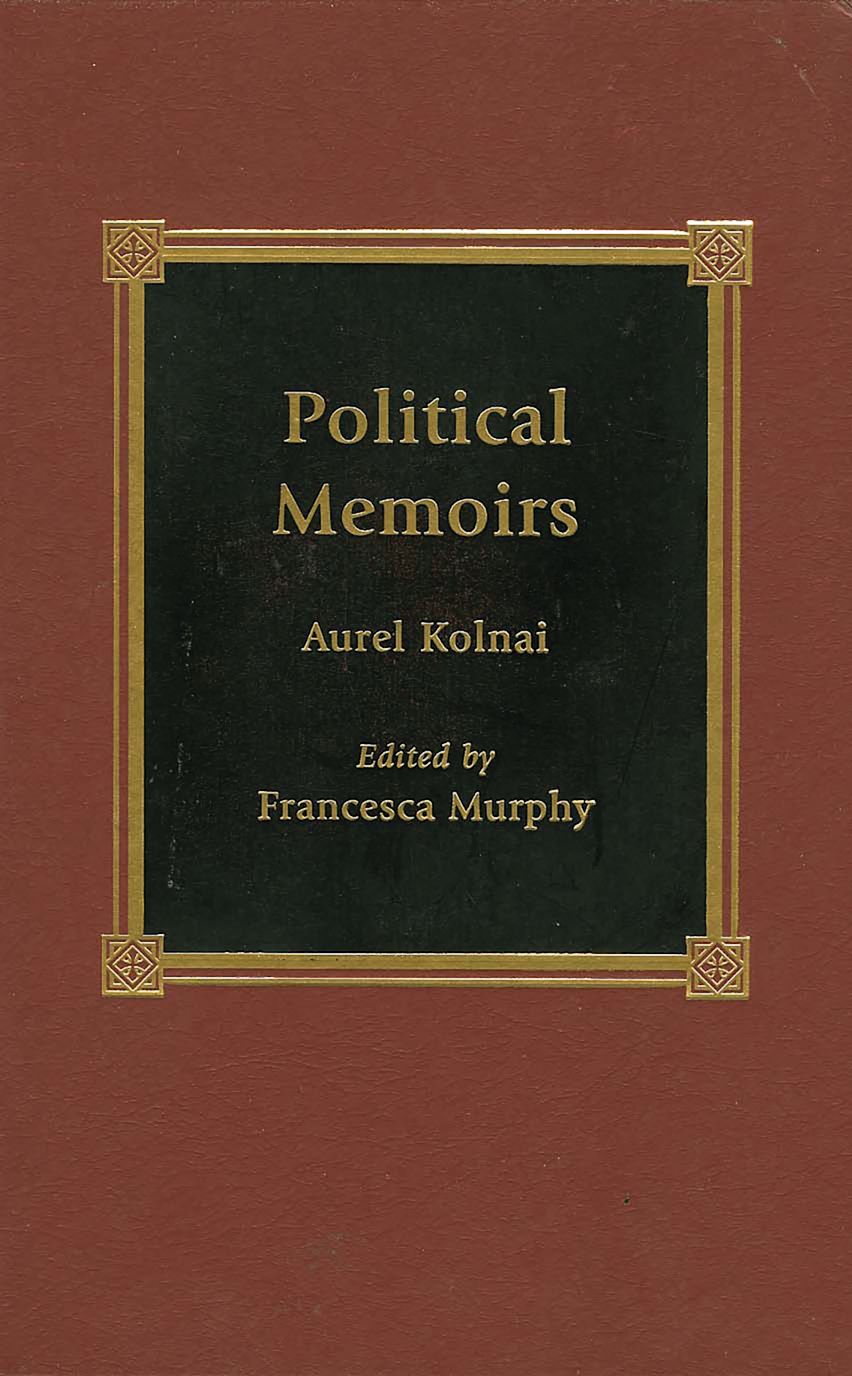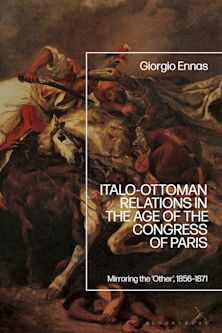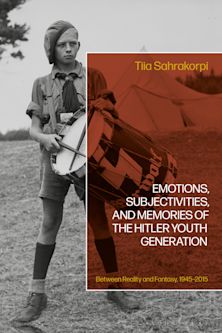- Home
- ACADEMIC
- History
- European History
- Political Memoirs
Political Memoirs
This product is usually dispatched within 1 week
- Delivery and returns info
-
Free CA delivery on orders $40 or over
You must sign in to add this item to your wishlist. Please sign in or create an account
Description
Ranked by many scholars as one of the most important moral philosophers of the twentieth century, Aurel Kolnai has been inexplicably neglected in this country until quite recently. He is best known for his works of political philosophy, recently published under the title The Utopian Mind: A Critical Study in Moral and Political Philosophy. Here, for the first time ever in English, is Kolnai's magnum opus, his Political Memoirs, superbly annotated and edited by Francesca Murphy of the University of Aberdeen, Scotland. The memoirs recount the author's life, from his childhood in the turn-of-the-century Austro-Hungarian Empire to his education in Germany and his early professional life in prewar Vienna. It was in these formative years that he converted from Judaism to Roman Catholicism and began his career as a writer and philosopher. The narrative continues through his years in exile in the United States and Canada, where he lived before ultimately settling in Great Britain and being granted citizenship in 1955.
Table of Contents
Chapter 2 Aurel Kolnai: Ten Plagues and Ten Commandments
Chapter 3 Biographical Notes
Chapter 4 Introduction
Part 5 Chapter 1 Armageddon
Chapter 6 One's Choice Is One's Law
Chapter 7 The Theme of the Great War
Chapter 8 Lutheran "Obergymnasium"
Chapter 9 The Double Consciousness
Chapter 10 The Twisting of the Theme
Part 11 Chapter 2 Shadows of Totality
Chapter 12 The End of the World: Swift and Unnoticed
Chapter 13 The Ghost of Reaction
Chapter 14 The Mirage of Progress
Chapter 15 Revolution, or the Fool's Paradise
Part 16 Chapter 3 When Tyranny Was Young
Chapter 17 The Impact of Bolshevism
Chapter 18 Homeward Exile
Chapter 19 My Crimes Against Psychoanalysis
Chapter 20 Ideas, Contacts and Polemics
Part 21 Chapter 4 In Statu Viae
Chapter 22 Conversion: "Metanoia" and Fulfillment
Chapter 23 The Decision
Chapter 24 God and Church
Chapter 25 Catholicism
Chapter 26 Paths That Lead to Rome: Spiritual Aspects
Part 27 Chapter 5 Chesterton and Realism
Chapter 28 Nearer to Me than I am to Myself
Chapter 29 Paths that Lead to Rome: Some Literary and Personal Influences
Chapter 30 Some Problems in Catholicism
Chapter 31 The Convert's Progress
Part 32 Chapter 6 The Coming of the Nightmare
Chapter 33 Years of Apprenticeship
Chapter 34 Democracy and "Anschlusz"
Chapter 35 A Summer Term in Freiburg
Chapter 36 Philosophy and Politics
Chapter 37 The Gathering Storm
Chapter 38 Socialist and Catholic Rightists in Austria
Chapter 39 "Religious Socialists" and "Christian Democrats"
Part 40 Chapter 7 The Promised Land
Chapter 41 The Turn of Life
Chapter 42 The West Invaded
Chapter 43 The Setting Sun
Chapter 44 The City of Lords
Chapter 45 The Suicide of Pacifism
Part 46 Chapter 8 Intermezzo
Chapter 47 The Escape
Part 48 Chapter 9 Civitas Hominis
Chapter 49 The "Choice for Freedom's Brotherhood"
Chapter 50 My American Life
Chapter 51 The Kingdom for the Common Man
Chapter 52 American Catholicism
Part 53 Chapter 10 The Realms of the Boreal Pole
Chapter 54 The Enemy Comes into His Own
Chapter 55 Homeward Exile
Chapter 56 "In the Frozen Sweat of Thy Brow"
Chapter 57 Canadian Twilight
Chapter 58 Persons and Incidents
Chapter 59 A Journey of Ghosts
Chapter 60 Endnotes
Part 61 Appendix
Chapter 62 "Physical Premonition" Versus Human Responsibility and Divine Judgement
Chapter 63 The "Official" Status of Thomism and the Problem of Christian Philosophy
Chapter 64 "Integralism", Opportunism and Modernism
Chapter 65 Index
Product details
| Published | Nov 03 1999 |
|---|---|
| Format | Hardback |
| Edition | 1st |
| Extent | 304 |
| ISBN | 9780739100653 |
| Imprint | Lexington Books |
| Dimensions | 236 x 154 mm |
| Series | Religion, Politics, and Society in the New Millennium |
| Publisher | Bloomsbury Publishing |
About the contributors
Reviews
-
Karl Popper wrote, "I personally think I could learn more from Kolnai, by way of stimulation, than from any other thinker in the field of political philosophy alive." . . . There seems finally to be a (slowly) growing recognition of Kolnai's achievements; . . . now we have Kolnai's provocative memoirs, nicely edited by Francesca Murphy.
Lee Congdon, James Madison University
-
Political Memoirs is a personal, passionate account of a man who was witness to and perceptive about the major events of the beginning and middle of the twentieth century. Kolnai writes from a cultural background with which few will be familiar. Yet he managed to know many of the leading intellectual figures and movements of this era. These memoirs are full of personal insight that, as an autobiography should, constantly touch on ultimate things. . . . With a combination of frustration and amusement, Kolnai pointed out the modern difficulty in understanding genuine conservative thought.
Rev. James V. Schall S.J., Georgetown University



































